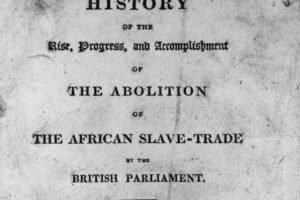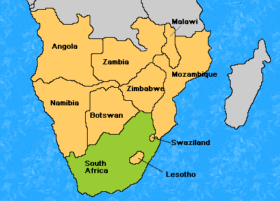South Africa has a rich and diverse history that can be traced back to ancient times. March 25 stands as another thread woven into this remarkable tapestry. Let us explore the layers of South African history, delving into the past and unravelling the narratives that left their mark on this extraordinary land.

2007: 200th Anniversary of the Abolition of the Slave Trade Act
The British Parliament passed the Abolition of the Slave Trade Act on March 25, 1807, which outlawed slave trade within the British Empire but not slavery itself. The act imposed a fine of £100 for every slave found on board a ship. However, slave trading continued as captains often threw the slaves into the sea to avoid fines. Slavery was abolished. throughout the British Empire on August 1, 1834,r years of apprenticeship. The British government officially abolished slavery in the Cape Colony on December 1, 1834, and slaves were apprenticed for four years. August 1 is now celebrated as a public holiday called “Emancipation Day.”
1994: ANC leads march through central Durban
Up to 100,000 people joined the African National Congress (ANC) in a march through central Durban to demand their voting rights. The march was organized after Zulu King Goodwill Zwelithini urged his subjects to boycott elections, claiming that the interim constitution would deny Zulu nation its claim to sovereignty and self-determination.
1990: The seven-day war in Kwazulu-Natal starts
The first of more than 100 people was killed near Pietermaritzburg. Political conflict in the KwaZulu-Natal Province of South Africa caused the deaths of 200 residents of Vulindlela and Edendale in March 1990. Three thousand homes were looted and burned, and some 30 000 people were forced to flee the area. The Inkatha Freedom Party, allegedly with assistance from the police, was suspected of being responsible for the attacks. In 1999, South Africa’s Minister of Water Affairs and Forestry, Ronnie Kasrils, planted a tree in memory of those who had died during this time.
1963: Pan Africanist Congress (PAC) leader, Potlako Leballo confirms that Poqo is the organisation’s military wing
Potlako Leballo, the leader of the Pan Africanist Congress (PAC), confirmed in Maseru, Basutoland (now Lesotho), that Poqo and the PAC are one and the same organisation. Leballo went further to say that the organisation’s revolutionary council was planning the timing and manner of an uprising to be launched in South Africa in 1963. At the time of his claims, the PAC, African National Congress (ANC), the Communist Party of South Africa (CPSA)and other liberation movements were banned by South African government. They were banned in April 1960 under the Unlawful Organisations Act (commenced 7 April 1960), but the CPSA was banned earlier in 1950 under the Suppression of Communism Act, and re-launched in 1953 as the South African Communist Party (SACP). Poqo continued to operate clandestinely, particularly in the Eastern and Western Cape. Between the end of 1962 and the middle of 1963 Poqo carried out a number of attacks on persons believed to be working with the security police to stem the tide of popular unrest. These included Black police officers and officials working in local government offices.
1961: A two-day All-in African Conference starts in Pietermaritzburg, Natal
In Pietermaritzburg, Natal, a two-day All-in African Conference was hosted with 1,400 delegates from various backgrounds. The conference called for a national convention of elected representatives of all adult men and women, regardless of race, colour or creed. Mr. Nelson Mandela was appointed secretary of the National Action Council. The conference was held four days after the first anniversary of the Sharpeville Massacre.
1961: Nelson Mandela is appointed the Secretary of the National Action Council
At the All Africa Conference held in Pietermaritzburg, Nelson Mandela was appointed Secretary of the National Action Council. The conference passed several resolutions, including a call for country-wide demonstrations in protest of undemocratic acts, and for all Africans to unite against oppression and win freedom. The Indian and Coloured communities, along with democratic Europeans, were also called upon to join the opposition. Lastly, democratic people worldwide were urged to refrain from any cooperation with the South African government and to impose sanctions against the minority government.
1939: Pius Langa is born
Justice Pius Nkonzo Langa was a prominent South African judge who served as the Chief Justice of the Republic of South Africa from 2005 until his death in 2013.
1807: British Parliament passes the Abolition of the Slave Trade Act
On March 25th, 1807, the British Parliament passed the Abolition of the Slave Trade Act, which outlawed the slave trade within the British Empire and imposed fines on captains caught transporting slaves. However, slavery was not abolished until 1833 with the Slavery Abolition Act. Today, March 25th, is recognized as the International Day of Remembrance of the Victims of Slavery and the Transatlantic Slave Trade.
1647: The Dutch Indiaman, the Nieuwe Haerlem, is wrecked in a storm in Table Bay
Numerous Dutch ships, called Indiamen, sailed to East Asia after Bartholomew Dias circumnavigated the Cape in 1488. The route was treacherous and many ships ran aground or suffered shipwreck. In 1647, the Dutch Indiaman, the Nieuwe Haerlem, was wrecked in a storm in Table Bay. This led to the creation of a new state on the southern part of the African continent. A junior merchant, Leendert Janszen, stayed behind with approximately 60 crewmen to look after the cargo that could not be loaded onto the remaining vessels of the fleet that was returning to Holland. During the waiting period Janszen and his crew grew vegetables, bartered fresh meat from the Peninsular Khoi people and fished. Upon his return to Holland Jansz and a fellow officer, Nicolaas Proot compiled a report on the feasibility of the Cape for a refreshment station. The Directorate of the VOC approved the Remonstrantie in 1650 and a year later, in 1651, the Amsterdam chamber of the VOC sent Jan van Riebeeck to establish the refreshment station at the Cape. Far from being developed as merely a refreshment station, the Cape became the gateway to the colonisation of the entire region as far north as the Orange and Limpopo Rivers.



